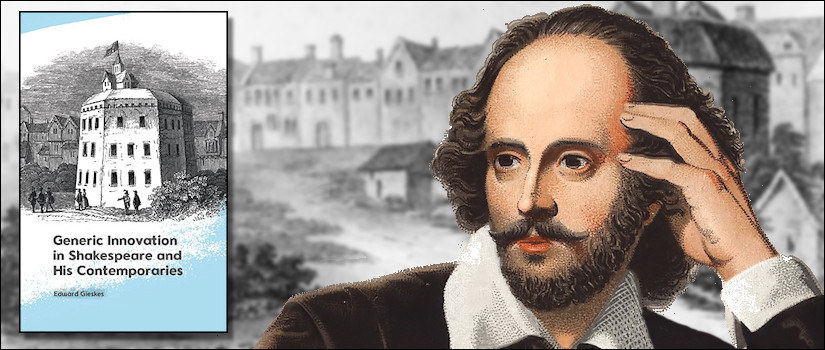In an exciting new book from the Edinburg University Press, the English department’s Professor Ed Gieskes provides a fresh way to understand the mutability of genre in early modern theater.
Generic Innovation in Shakespeare and His Contemporaries (2023) investigates the processes by which such genres as romance, tragedy, and comedy were transformed by dramatists in this period. Unlike much prior scholarship, Gieskes’ book contends that such change happened largely as a result of competition within the dramatic field. He draws on the work of Bakhtin and Bourdieu, as well as on theatre history, book history, and literary criticism, to advance an argument about generic change as one effect of dramatists’ creative-combative confrontations with each other in the field of cultural production.
Professor Gieskes has previously written the monograph Representing the Professions (Delaware, 2006) and co-edited (with Kirk Melnikoff) Writing Robert Greene: New Essays on England’s First Notorious Professional Writer (Ashgate, 2008). Recent publications include: “Material and Institutional Contexts of Early Modern Drama: An A-Z” in the Arden Handbook to Shakespeare and Early Modern Drama (Arden Shakespeare, 2022), “‘materia conveniente modis’: Ovid and Drama” in Ovid and Adaptation in Early Modern English Theater (Edinburgh University Press, 2019), “Rumour’s Household: Truth, Memory, Fiction, History” in Shakespeare and Memory (Routledge, 2017), and “Learning and Teaching Resources: History, Politics, and Edward II” (Arden Shakespeare, 2017).
Generic Innovation in Shakespeare and His Contemporaries has begun to receive praise from prominent scholars in the field.
For Gieskes, early modern dramatic genres are social: not things to be understood in relation to abstract formal ideals, but processes negotiated within the dynamic contexts of literary production. His rich and wide-ranging book shows how the innovations of Shakespearean drama were the product both of a competitive theatrical marketplace and of a broader, complex, and deeply self-conscious poetic environment.
– Tom Rutter, University of Sheffield
You can click here for further information!
